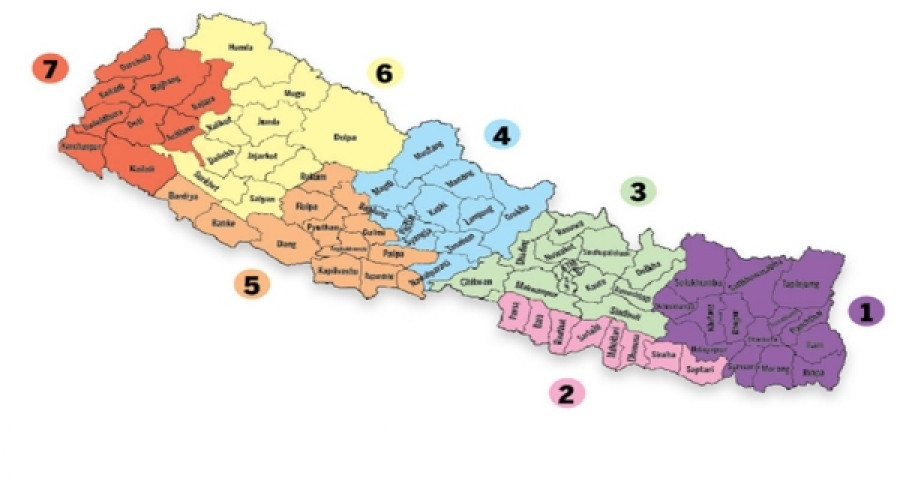Editorial
Mind your own business
The federal government needs to stick to its jurisdiction and let the provincial governments enjoy their authority over certain things.
Nepal’s historic leap towards a federal system from a unitary system has not been as smooth as expected, as Kathmandu remained reluctant to devolve power to the provinces. And in yet another display of this unwillingness, the federal government decided to merge the Sagarmatha Forest Development Project with Timber Corporation of Nepal. But this time around, the Province 2 Ministry of Industry, Tourism, Forest and Environment decided to take the legal route to solve the problem by filing a case against the federal government at the Supreme Court, deepening the fault lines in our federalism. Federalism will be futile unless power is dispersed and diversity is permitted.
Annexe 6 of the constitution and Article 24 of the Forest Act 1993 clearly state that forest conservation falls under the jurisdiction of the provincial government. What's more, the residents of Province 2 assert that the Sagarmatha Forest Development Project is the lifeline of the province. Timber Corporation of Nepal is a semi-autonomous body under the Ministry of Forests and Soil Conservation. The institution has a government mandate to meet the forest product demands of the urban population, and sells sawnwood and fuelwood as appropriate.
From endorsing the Provincial Police Act in October 2018 without waiting for the Federal Police Act to refusing to endow full autonomy to the provincial and local governments when it comes to education, examples abound of how the federal government has wanted to keep a tight grip on power and authority. The main grievance of the provinces is lack of cooperation from Kathmandu, and Province 2, especially, has been at the forefront in confronting the federal government.
Articles 232, 234 and 235 of the constitution define the relationship between the federation, state and local level. Article 232 envisions the relationship as one of ‘cooperation, coexistence and coordination’. Article 234 expounds the role of the Inter-State Council that is necessary to settle disputes of a political nature between the 'federation and a state and between states' where the prime minister will chair the council with the home minister and finance minister as members along with the chief ministers of the provinces and other representatives.
Clearly, when the constitution mandates there be cooperation and coordination between different tiers of government, it becomes unbecoming of the federal government when it refuses to grant autonomy and delegate power to the provincial governments. The recent fracas between the federal government and Province 2 should prod the federation to indulge in some introspection.
If the federal government was not ready to delegate power, it should not have gotten swayed by the idea of delegating power and bringing ‘Singha Darbar’ to everyone’s doorsteps. But since the administration came into office with the election plank of decentralisation, it should keep its word.
The federal government needs to stick to its jurisdiction and let the provincial governments enjoy their authority over certain things. If the federal government is adamant on encroaching on the provincial and local governments' space, the legal route taken by the concerned ministry in Province 2 could be the norm rather than the exception.
***
What do you think?
Dear reader, we’d like to hear from you. We regularly publish letters to the editor on contemporary issues or direct responses to something the Post has recently published. Please send your letters to [email protected] with "Letter to the Editor" in the subject line. Please include your name, location, and a contact address so one of our editors can reach out to you.




 8.22°C Kathmandu
8.22°C Kathmandu














